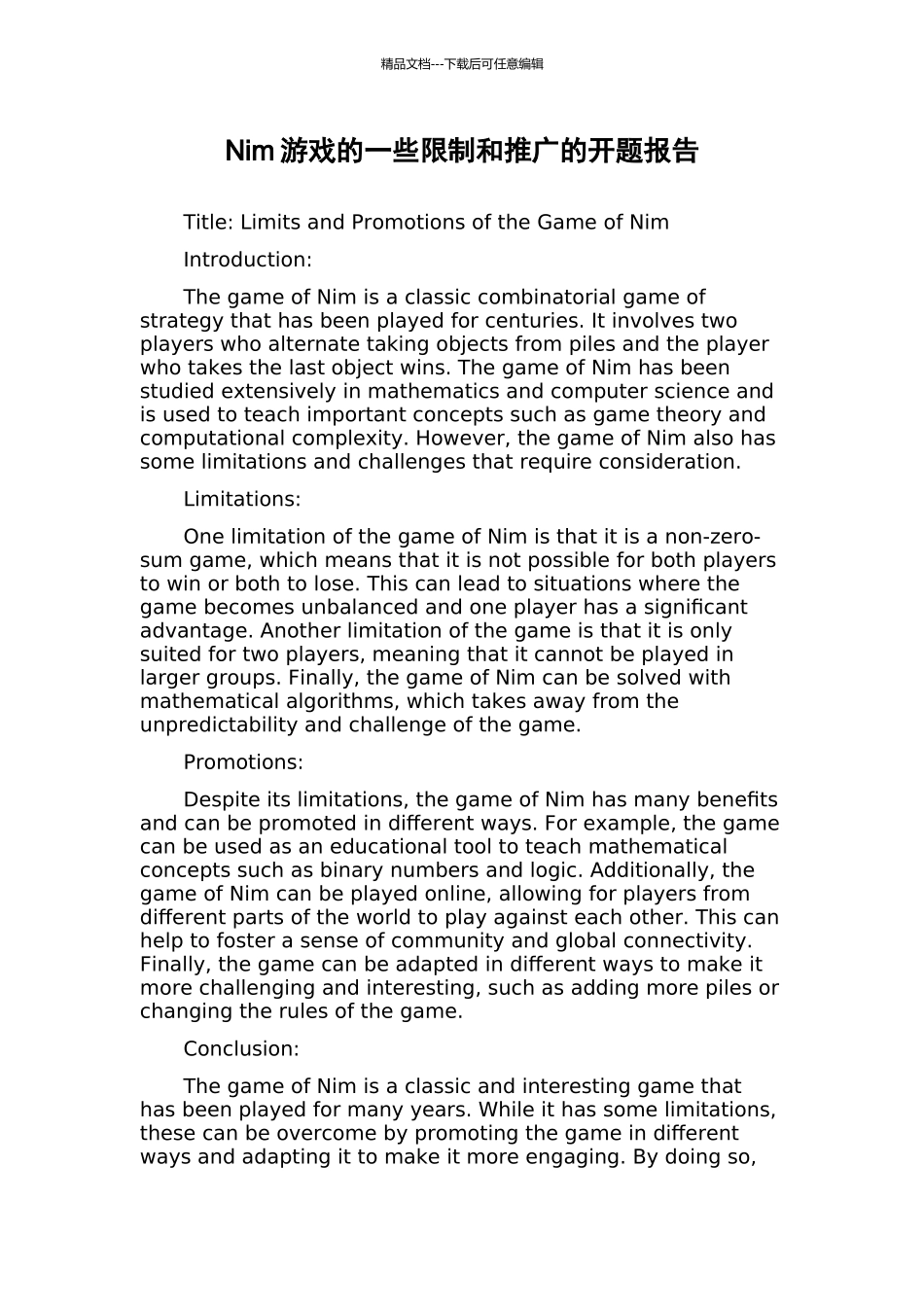精品文档---下载后可任意编辑Nim 游戏的一些限制和推广的开题报告Title: Limits and Promotions of the Game of NimIntroduction:The game of Nim is a classic combinatorial game of strategy that has been played for centuries. It involves two players who alternate taking objects from piles and the player who takes the last object wins. The game of Nim has been studied extensively in mathematics and computer science and is used to teach important concepts such as game theory and computational complexity. However, the game of Nim also has some limitations and challenges that require consideration.Limitations:One limitation of the game of Nim is that it is a non-zero-sum game, which means that it is not possible for both players to win or both to lose. This can lead to situations where the game becomes unbalanced and one player has a significant advantage. Another limitation of the game is that it is only suited for two players, meaning that it cannot be played in larger groups. Finally, the game of Nim can be solved with mathematical algorithms, which takes away from the unpredictability and challenge of the game.Promotions:Despite its limitations, the game of Nim has many benefits and can be promoted in different ways. For example, the game can be used as an educational tool to teach mathematical concepts such as binary numbers and logic. Additionally, the game of Nim can be played online, allowing for players from different parts of the world to play against each other. This can help to foster a sense of community and global connectivity. Finally, the game can be adapted in different ways to make it more challenging and interesting, such as adding more piles or changing the rules of the game.Conclusion:The game of Nim is a classic and interesting game that has been played for many years. While it has some limitations, these can be overcome by promoting the game in different ways and adapting it to make it more engaging. By doing so, 精品文档---下载后可任意编辑the game of Nim can be enjoyed by a wider audience and continue to be a valuable tool for teaching important concepts.

